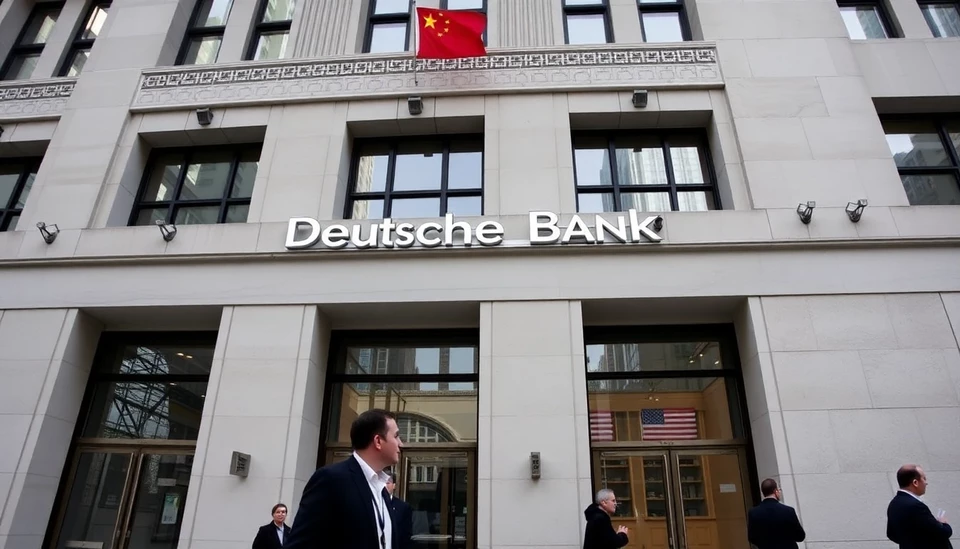
In a notable shift in investment patterns, Deutsche Bank has recently reported a significant trend of Chinese clients withdrawing their assets from U.S. markets. This development comes amidst growing concerns over geopolitical tensions and regulatory changes that are prompting investors to reconsider their exposure to American financial entities.
The report highlights that a growing number of affluent Chinese investors and large corporations are increasingly seeking opportunities in alternative markets. According to Deutsche Bank, this trend isn't just a temporary adjustment, but rather a reflection of a broader strategy aimed at mitigating risks associated with the current climate of uncertainty surrounding U.S.-China relations.
Chinese financiers have expressed particular anxiety over various factors, including rising tensions between the two nations, regulatory crackdowns, and the fluctuating performance of U.S. equities in the wake of market volatility. As a result, many clients are opting to diversify their investments, pulling capital from U.S. assets to seek refuge in markets perceived as more stable or favorable.
Furthermore, Deutsche Bank's report indicates that this migration of assets is not limited to private clients but encompasses institutional investors as well. The bank observed an uptick in inquiries about investment opportunities in regions outside the United States, especially in Europe and Asia, which are being marketed as less risky alternatives amid the ongoing volatility in the U.S. financial landscape.
This trend could have significant implications for U.S. financial markets, as the withdrawal of capital from foreign investors may reduce liquidity and amplify market fluctuations. Additionally, the decrease in investments from one of the largest economies in the world raises concerns regarding long-term financial stability across various sectors dependent on foreign capital.
Deutsche Bank's insights come at a time when financial institutions are bracing for a potential slowdown in growth prospects, particularly as the U.S. Federal Reserve continues to adjust interest rates in response to inflationary pressures. Investors are not only reevaluating their exposure to U.S. markets but are also closely monitoring shifts in global economic conditions, which further complicates the investment landscape.
In light of these developments, it's clear that the relationship between Chinese investors and U.S. markets is undergoing a transformation, driven by a combination of strategic asset management and external pressures. Whether this trend will continue remains to be seen, but as geopolitical dynamics evolve, it is likely that the flow of capital will adjust accordingly.
The current situation underscores the interconnected nature of global finance, where investor sentiment and international relations can have profound effects on market behavior. As Deutsche Bank continues to analyze these trends, stakeholders will need to remain flexible and adaptive to navigate the complexities of a rapidly changing investment environment.
In conclusion, the movement of Chinese clients away from U.S. assets signals a pivotal moment for investors, highlighting the need for vigilance in monitoring economic indicators and geopolitical developments that may influence future investment decisions.
#DeutscheBank #ChinaInvestments #USEconomy #GlobalFinance #AssetManagement #InvestmentTrends
Author: Samuel Brooks




